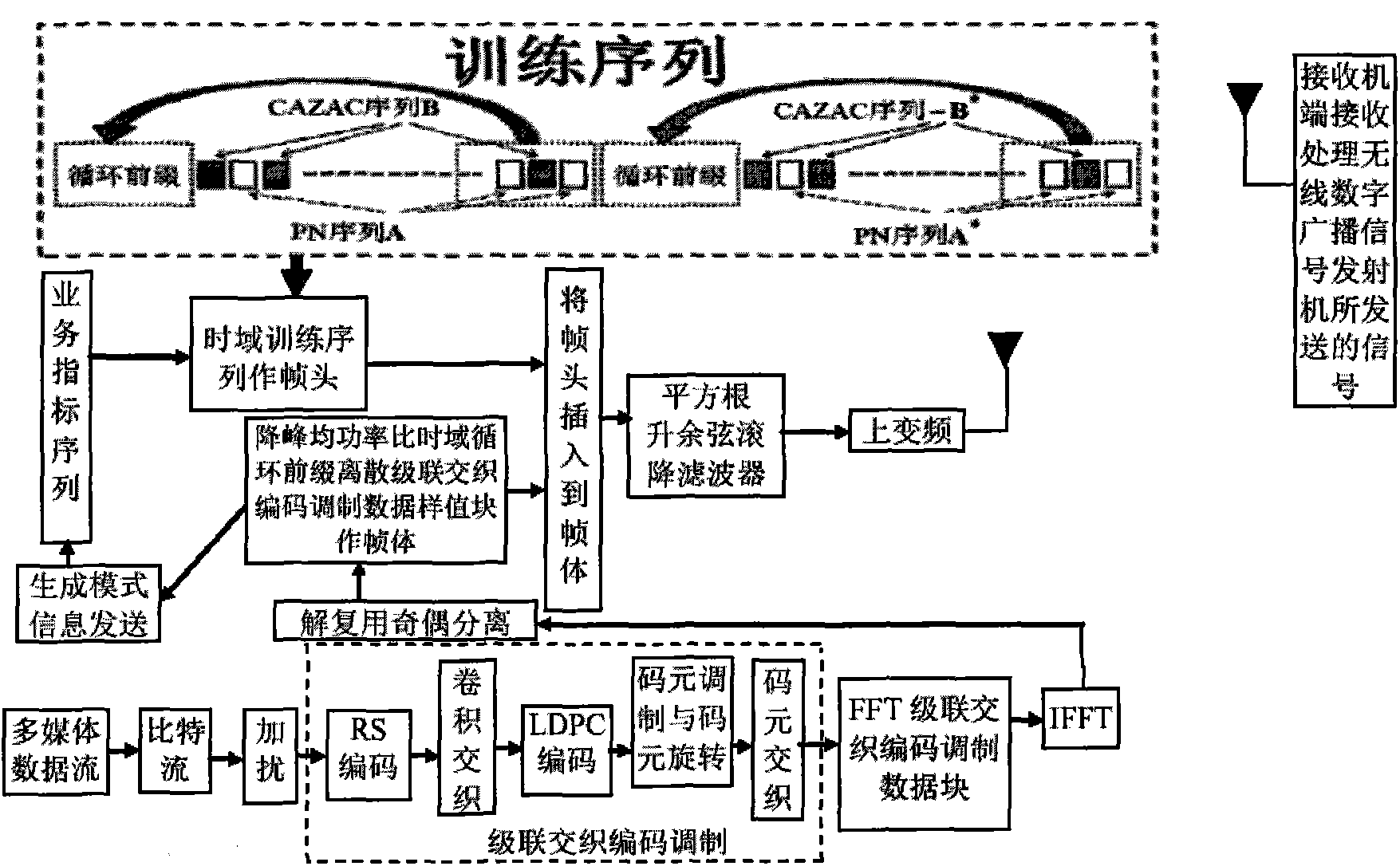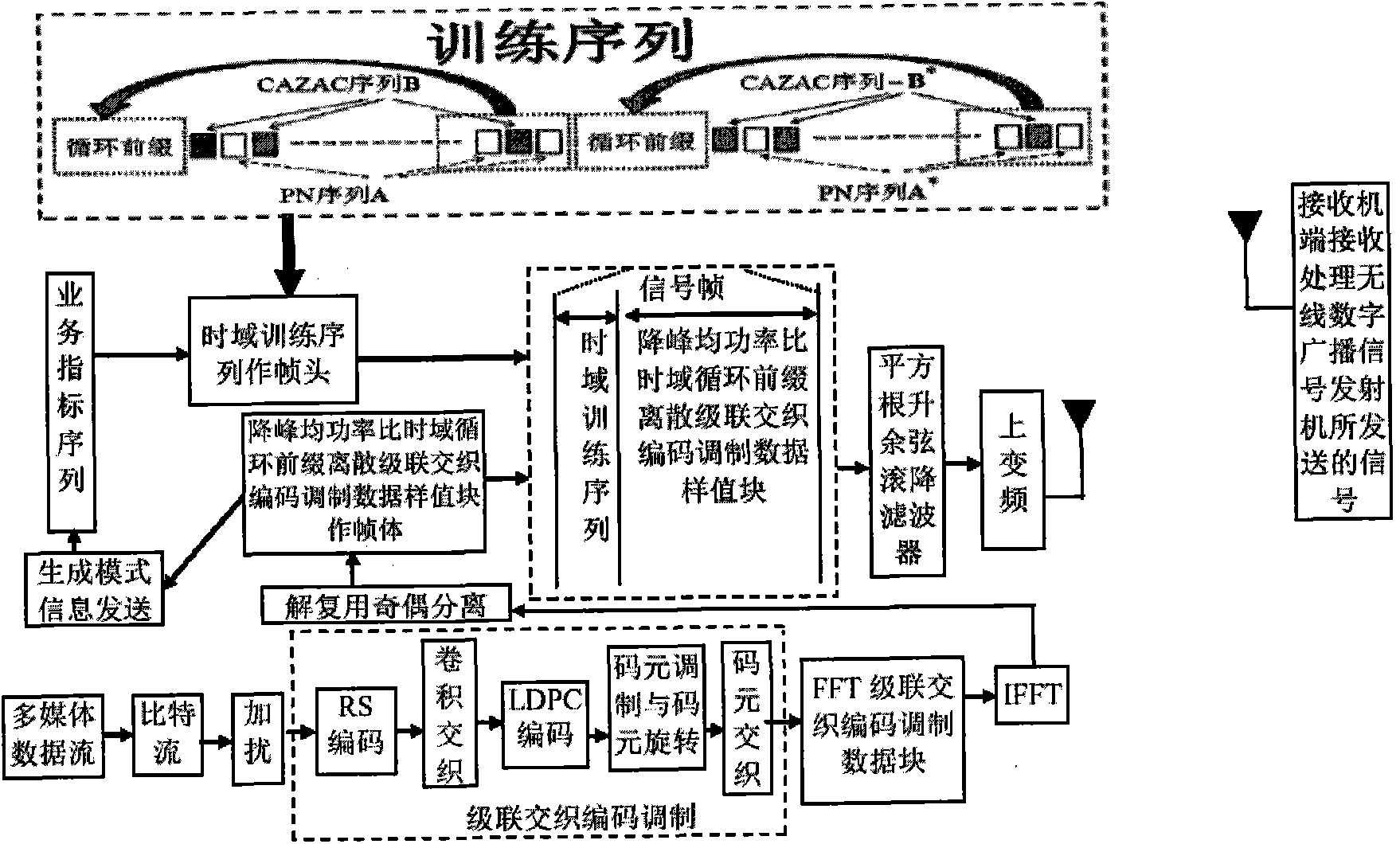Digital broadcasting mobile signal anti-fading transmission method
A mobile signal and digital broadcasting technology, applied in digital transmission systems, transmission systems, electrical components, etc., can solve problems such as signal distortion, sub-channel orthogonality destruction, mutual interference, etc., and achieve a small amount of information and easy processing and recovery Effect
- Summary
- Abstract
- Description
- Claims
- Application Information
AI Technical Summary
Problems solved by technology
Method used
Image
Examples
Embodiment Construction
[0031] Specific embodiments of the present invention will be described in detail below in conjunction with the accompanying drawings.
[0032] A schematic diagram of an embodiment of signal transmission between a certain transmitter and a receiver of a digital broadcast mobile signal anti-fading transmission method according to the present invention, as shown in FIG. figure 1 shown, follow these steps:
[0033] 1) The digital broadcast mobile signal anti-fading transmitter converts the multimedia data stream into a bit stream through a media data processor, and uses the scrambling code sequence generated by the feedback shift register to perform scrambling processing to form an input data bit stream;
[0034] 2) The anti-fading transmitter of a digital broadcasting mobile signal forms an FFT level in the frequency domain after its input data bit stream undergoes RS coding, convolutional interleaving, LDPC coding, symbol modulation, symbol rotation, and symbol interleaving Con...
PUM
 Login to View More
Login to View More Abstract
Description
Claims
Application Information
 Login to View More
Login to View More - R&D
- Intellectual Property
- Life Sciences
- Materials
- Tech Scout
- Unparalleled Data Quality
- Higher Quality Content
- 60% Fewer Hallucinations
Browse by: Latest US Patents, China's latest patents, Technical Efficacy Thesaurus, Application Domain, Technology Topic, Popular Technical Reports.
© 2025 PatSnap. All rights reserved.Legal|Privacy policy|Modern Slavery Act Transparency Statement|Sitemap|About US| Contact US: help@patsnap.com


